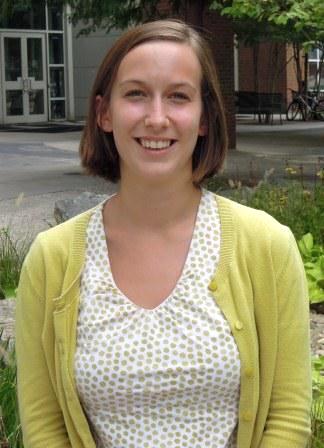HEATHER ROCHA
CAPSTONE
Capstone Project Committee: Stephanie Austin, M.S., CGC; Nancy Callanan, M.S., CGC; Jennifer Sullivan, M.S., CGC
Background: Recently, adolescent transitions in the context of healthcare have begun to gain attention among pediatric providers. General guidelines for developing transition plans were established by the American Academies of Pediatrics in 2002, but specific educational topics covered in each plan will be unique to each patient’s diagnosis.
Purpose: The goal of this study was to identify issues specific to the glycogen storage disease (GSD) population to create a targeted medical transition program.
Methods: Focus group participants were recruited through the Association for Glycogen Storage Diseases listserv. The thirteen participants included professionals, adults with GSD, and parents. The focus group was recorded and transcribed. To identify common themes, the PI and one advisor analyzed the transcription until agreement was reached.
Results: Four major themes were identified: monitoring systems, technology and tools, shifting responsibility, and general issues of adolescence. The themes discussed most frequently guided the development of program sections and provided a basis for addressing specific concerns during transition. Selected quotes were used throughout the program to highlight individual experiences.
Discussion: To encourage successful self-management for the future, it is the responsibility of the pediatric healthcare team to begin teaching skills that promote independence and responsibility for care. The goal of this program is to provide clinicians with all the necessary tools to teach those skills. Four program sections were designed to address this goal: Introduction to the Teen Transition Plan; Understanding GSD, Your Body, and Alcohol; Body Image and Exercise; and Peer Support and Mentoring.
Conclusion: This unique transition program addresses the needs of 11 to 14 year olds with GSD and their families. The study assessed the needs and ideas of a specific population and used relevant information to develop a tool that can be easily implemented into clinical care by any healthcare provider.
Since Graduation

Heather is a 2014 graduate of the program, and has been with Geisinger for over 7 years. She continues to lead the Cancer Genetics program and Geisinger’s multi-disciplinary Lynch Syndrome Management Program serving over 150 patients in our community with the condition. In 2020, Heather was nominated for the Heart of Genetic Counseling award; in 2019, she received a Top Patient Experience award for outstanding patient satisfaction scores. She continues to split time between research and clinical care, focusing on hereditary GI cancer syndromes. Heather is expecting her second child in 2022 and continues to enjoy her busy life with a toddler, husband, and dog (who adopted in NC during her first week of classes) in Lewisburg, PA.
